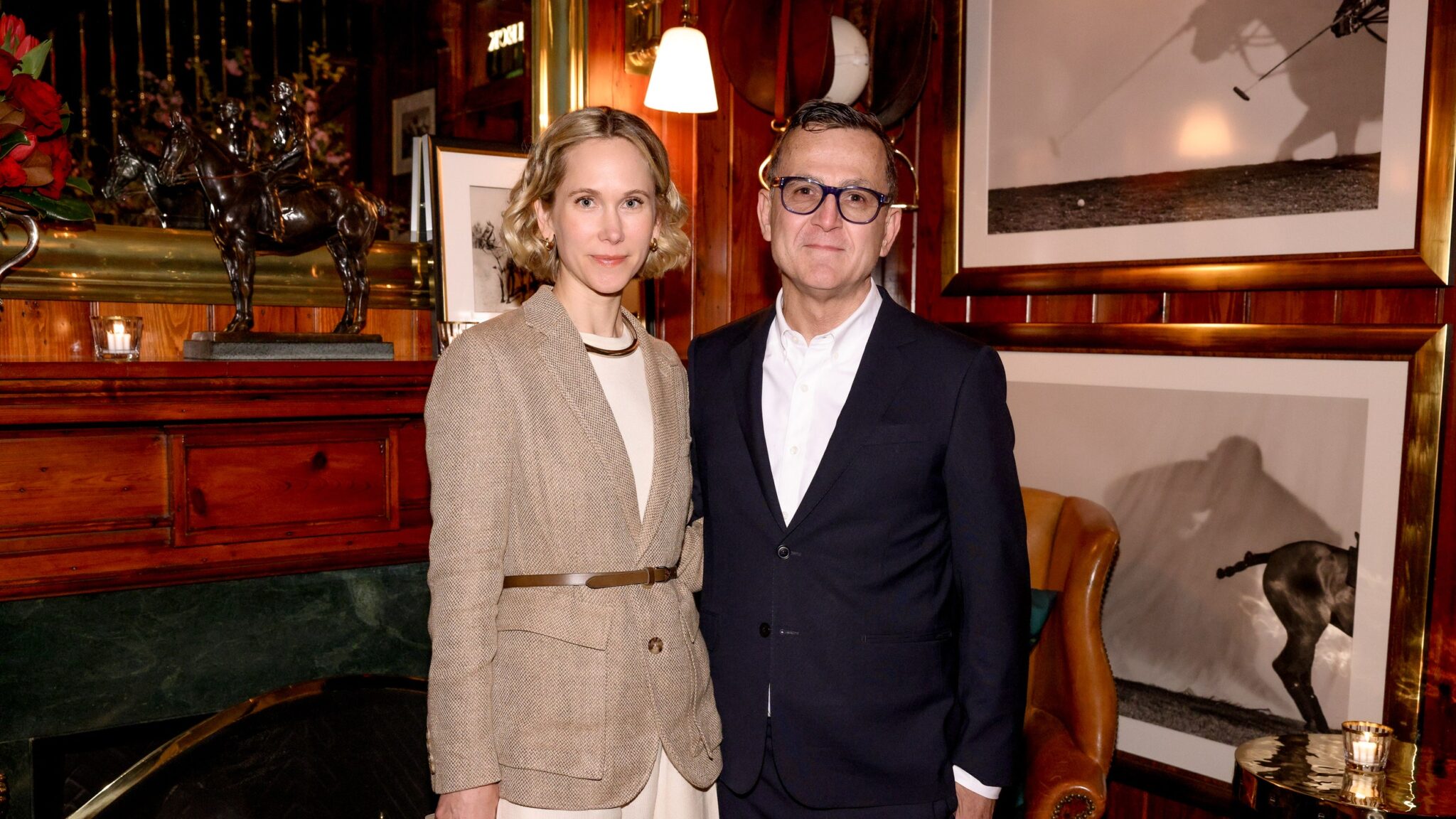On a rainy Tuesday afternoon, a handful of America’s most notable designers gathered for lunch at The Polo Bar on 55th Street with one shared interest: an improved future for fashion. In honor of the launch of The Circularity Project, a new nonprofit founded by fashion veteran Indré Rockefeller, Ralph Lauren and the CFDA co-hosted the event. Indré’s initiative advocates design tactics that promote longevity and minimize environmental impact and invites designers to learn from and support each other in pursuit of a better – and more circular – way to make clothing.
“80-90% of a garment’s environmental footprint is determined at the design stage,” Indré said in her opening speech. “I hope this project gives designers the feeling that they have the tools and community they need to shape the future and possibilities for design, in an open and transparent way.” The following speakers, including Emily Adams Bode Aujla, Hillary Taymour from Collina Strada, Maxwell Osborne from An Only Child and Stuart Vevers from Coach – each discussed how they think about textiles, sustainability, craftsmanship and design with circularity in mind. With their own unique perspectives and approaches to minimizing impact (while Emily Bode spoke about Bode’s focus on reusing fabrics so they last for generations as heirlooms, Hillary Taymour mentioned Collina Strada’s sustainable textiles such as vegan leather and alternative silk) .
“Designers are often so focused on their own work, whether it’s for their own labels or for a brand they work for, that it’s easy to forget that we’re part of a community,” says participant and creative director Carolina Herrera Wes Gordon. “Especially in New York, we have a friendly, close-knit community that we don’t get involved with enough. Remembering that we are a family is a great message from The Circularity Project.â€
Across the table, Linda Fargo of Bergdorf Goodman said that as a consumer and fashion observer, she thinks another way to improve environmental impact is to produce less. “Most likely we don’t need as much stuff as we have,” she says. “It’s difficult because the company can be at odds with the intention. We’ve built a world of ‘I shop, therefore I exist.’ We cannot deny that we live in a consumer culture. But according to Indré, we can make better decisions at the creation level about how and what is created.â€





